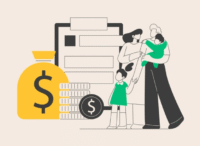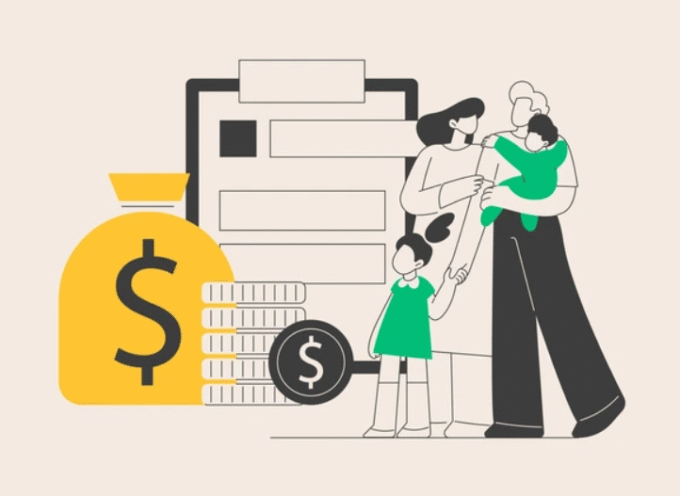Parrots are intelligent social animals with fascinating and emotionally rich relationships with people. These intelligent birds can mimic human speech and some even develop unique contact calls for their favorite humans. Their speaking abilities and social intelligence make them stand out among other pets.
Table of Contents
Some people can train their pet parrots to mimic them precisely. In today’s technology-driven world, if your parrot recites a stolen credit number and expiry date and manages to complete a fraudulent transaction, who will be responsible for the crime?
Whether the bird or its owner will be held accountable for the crime depends on the jurisdiction and the laws in place. In this write-up, you will discover whether a non-human actor can carry the legal responsibilities for their actions, the boundaries of liability, and global legal systems.
Why is credit card fraud and animal accomplice legally relevant in today’s tech-driven society?
The unauthorised use of a credit card or its details for a transaction has long been a common crime. Some common forms of credit card fraud include using the card for transactions, stealing the card information, or phishing. Technological innovation and increasing sophistication of criminal tactics have fueled a rapid increase in credit card fraud in recent times.
Card fraud has evolved from traditional methods, such as stealing or skimming cards, to online transactions that do not require the physical presence of the card. This therefore, makes it easier for non-human actors like parrots to commit or assist in committing these kinds of cases.
Can a parrot commit credit card fraud?
There is no doubt that parrots are intelligent animals capable of mimicking speech. Parrots can perform various speaking tasks when trained. It will not be surprising if a parrot commits credit card fraud or even executes a fraudulent transaction. However, the bigger question still remains: who will carry the weight of the whole situation? Can Polly be arrested for fraud?
Can animals be held accountable for a crime?
This is a tough one. Globally, animals have laws that protect them, but are there laws that can hold them accountable for criminal activities?
Interestingly, animals all over the world are not considered criminally liable. This is because animals lack a guilty mind, in other words, known as the capacity of mens rea. The cornerstone of criminal law, mens rea, requires understanding, intent, or recklessness, a cognitive ability lacking in animals.
In most countries, animals are not regarded as legal persons and therefore can not stand trials. In countries like the United States, the United Kingdom, Canada, and other common law countries, animals are treated as property and not legal persons.
In civil law countries like Germany, Japan, and France, animals are excluded from all forms of criminal trials. Under the Principles of International Laws of the United Nations, only human actors or legal entities can be held accountable for crimes.
A parrot lacks the ability to form criminal intent. Judging from this point, any action taken by the bird is influenced by the training and not independent decision-making. Even Polly will not know that he is committing a crime.
Who is liable for the crime?
If Polly is not even aware that he is committing a crime, it wouldn’t be fair for the bird to bear the legal weight of the crime. Will it? Let us know in the comments.
Under the laws, the person who benefits, facilitates, or instigates the crime is responsible. This principle applies whether the intermediary is human, animal, or technological.
Pet owners will still be held accountable even if the animal acted independently.
Global perspective of animal trials
Universally, animals can be used as an instrument to cause physical harm and financial loss. However, the law holds the owner(s) of the animal liable.
United States: The Model Penal Code of the United States holds people accountable for various crimes committed by innocent or irresponsible agents. If you train a parrot to commit credit card fraud, the parrot may be charged with abetting a crime, fraud, or conspiracy. But here is the case, animals can not be held responsible for any crime. In short, animals are not criminally liable for their action in the United States. The legal consequences of crimes committed by animals are carried by their owners or caretakers.
United Kingdom: Just like the United States, the owners or handlers are liable for crimes committed by their animals or pets. The Fraud Act 2006 of the United Kingdom defines fraud as making a representation with the intent to cause a loss or gain. Globally, the law says animals do not have intent or mens rea.
European Union: Owners are liable for crimes committed by their animals. Under the French Penal Code, intent for criminal liability is required for prosecution. Clearly, the animal will be excluded, but the owner or trainer will be implicated.
In Germany and civil law jurisdictions, the trainer or the owner of the animal will be held accountable for the crime.
International law consideration: In cases involving international persons, implicating treaties like the Council of Europe’s Convention on Cybercrime (2001) come into play. Article seven of the treaty holds people accountable for computer fraudulent acts committed through any means.
In the scenario involving the bird and its owner, the owner or the handler of the bird could face charges in multiple jurisdictions.
Legal proceedings involving animals in criminal acts
We have not come across a record case of a parrot committing credit card fraud. In the Middle Ages, animals were occasionally tried or caged for causing harm or committing crimes like destroying crops or attacking people. This practice is common in some parts of Africa. However, the owner or the handler of the animal is often made to pay for the damages.
In most jurisdictions, animals lack the moral agency for criminal guilt. The law does not permit the prosecution of non-humans because they lack mens rea.
It will not be easy to prosecute a case involving a bird committing credit card fraud. The prosecutor will likely face many legal and practical challenges.
Even if there is evidence of the parrot committing fraud, forensic analysis could play a role.
FAQs
| Frequently Asked Questions | Legal Answer |
| Can an animal be sued for a crime? | No. Globally, animals are considered property; therefore, they cannot be sued. Animals also lack the intent to commit a crime, known as mens rea in legal terms. |
| If a trained parrot commits a crime, who will be legally responsible? | The trainer will be responsible for the crime. Animals cannot be held responsible for a crime. |
| Do animals have laws? | Yes. Animals have laws that protect them against human cruelty and other risk factors. |
| Can animals be seized for crimes? | Yes. The court can seize animals for crimes. |
| If an animal commits a crime by itself, who will carry the legal weight of the crime? | Globally, owners or handlers of animals will be held accountable for the crimes of their animals or pets. |
Conclusion
Globally, animals are not criminally liable for crimes. Even if the parrot committed the crime, its owner or handler will be held accountable for the crime.
Parrots or any other animal are considered property in the eyes of the law. Non-human animals lack mens rea, the guilty mind. Therefore, they cannot be sued or prosecuted for crimes they committed knowingly or unknowingly. The legal system can sometimes seize animals for being involved in criminal activities.
We hope your curiosity is satisfied. Let us know what you make of this topic in the comments.

















